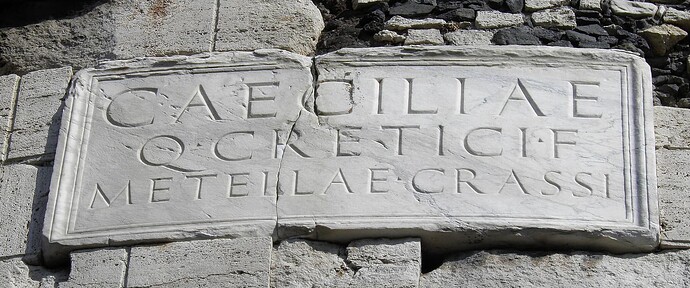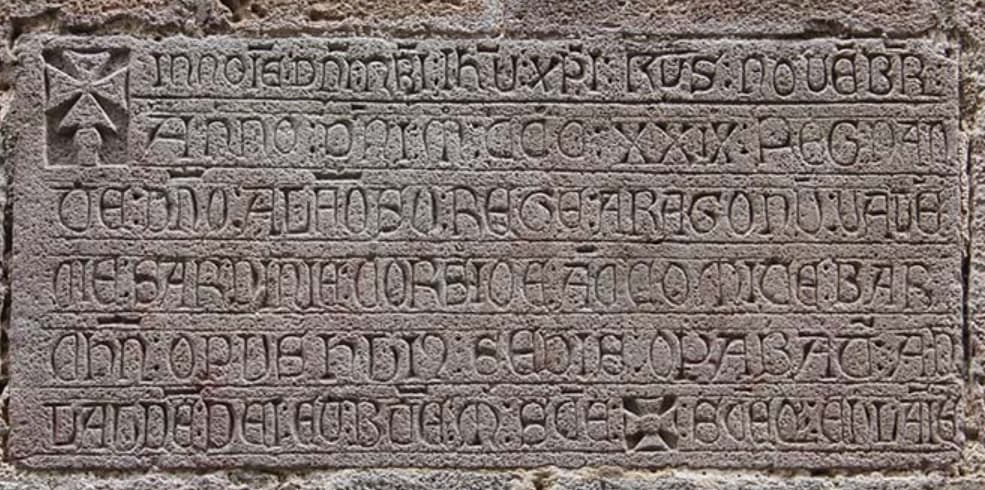Another great one from tumblr:
etherealspacejelly
i think we should all start using arabic words and phrases more often because its a beautiful language and also theres not really. english equivalents that have the same vibes
theres also the comedy potential of it. you guys dont know the joy of having your muslim friend text you “hopefully the racists in our city will all get sick and cant go to the protest” and you, as a pasty white guy, responding with “inshallah they get covid”
its a one hit KO every time. its fucking hilarious. theres no english word that has the same effect.
he also once texted me that he got over a mysterious illness he came down with (i think? i cant remember the exact context) and i responded with “subhanallah he is cured”
again, one hit KO. he lost his shit.
what im saying is we gotta normalise arabic. its just a language like any other, and it has some great words. its just like saying “thank god” or whatever, but theres so much variety and nuance. its beautiful
silly-demon
what do inshallah and subhanallah mean so I could potentially use em in the correct situations? And potential words I could use?
etherealspacejelly
OK LETS DO THIS
disclaimer i am not arab or muslim and i dont speak arabic but @frogofalltime has explained these words to me and says im using them correctly lmao
inshallah - “if god wills it”. like an “i hope this happens” kind of thing. remember the finding nemo poster “inshallah they find him” meme if that helps. used in future tense.
mashallah - “god has willed it”, used when something good happened. can be used to denote awe about an event or person. used in past tense.
alhamdulillah - essentially “thank god” or “praise be to god”. like mashallah and inshallah but stronger, and can be used in any tense (i think). he will be baked soon alhamdullilah
subhanallah - “glory be to god”. like alhamdullilah but stronger. used for when something almost miraculous happens!
those are all the ones i remember off the top of my head im sure binya can add more (and also confirm whether ive got my translations right)
frogofalltime
mashaallah robin my faithful student you translated and explained all of this so well :0
there’s also astaghfirullah which means “i seek forgiveness in god” which you use when you or someone else does something haram (forbidden / sinful / wrong). tbh we use it in a lot of jokey contexts like if someone swears in a conversation you can call them out like “astaghfirullah haram !”
and bismillah which means “in the name of god” which you can use before doing something, we often use it before doing a difficult thing like when you are struggling to open a bottle or something lmao. or you can say it when someone falls or drops something or gets injured. idk
headspace-hotel
appalachians need this they will be unstoppable
maniculum
There’s definitely something to doing a mix-and-match with semantically-similar rural-American colloquialisms. I think “Inshallah and the creek don’t rise” has a nice ring to it.
headspace-hotel
Lord that rolls off the tongue so good ![]()
ETA:
Your Arab friends don’t have to be Muslim to appreciate their use, either. Our Christian Arab friends crack right TF up whenever I say “Inshallah.” XD
I’m conflicted. On one hand I think is a brilliant appropiation of cultural idioms. On the other hand if there’s one thing the american language doesn’t need is more references to god.
In exchange I will leave here two -somewhat insulting- adjectives for people from my mother’s tongue that are a bit niche but beautiful:
Tastaolletes/Tastolles (lit: pot-taster) someone who always takes a long time to decide and insists on seeing more options, be it food, clothes, furniture, etc… more often applied to men than women:
“Abe, stop tastolling and buy your keyboard already! The one you procured from the office is already falling apart!”
Cardapressecs (lit: apricot-carder) someone who’s fastidiously meticulous about everything. Synonim of punctilious, but less “Jeeves” connotation and more “someone trying and failing to be like Jeeves while annoying everyone around”.
“Carl insisted again that we must use exactly TWO spaces per tab to indent our code, and he gave me a list of all the instances I did not do that… EVEN IN THE COMMENTS! I wish he would stop being such a Cardapressecs.”
Those are great!
Finnish is making me go crazy
So the story started when 2 months ago I listened to Säkkijärven Polkka full version for the first time and it went so hard that I decided to learn the language. Then the first month I only focused on vocabulary and pronunciation, then in the second month is where things started going crazy. When I first decided to take a look at the cases chart, it seemed so scary to me that I even had a nightmare which literally went like me getting chased by the whole Finnish noun grammatical case chart. Then after that I wanted to learn the plural and I’m still trying to wrap my head around it but I can’t understand it fully. After that I decided to start watching English movies with Finnish sub and the first movie I chose was breaking bad, then the day after my mom woke me up at 3 am and said I was trembling and mumbling “Herra White” and some unintelligible gibberish (which was something in Finnish). But I didn’t remember any dream that day. And here I am now with PTSD from the ridiculously hard grammar and the completely different vocabulary from rest of the world, I’ll probably have to take a few days of break or I’d probably go insane.
Relatable.
The article OP suggests their native language is English (“I decided to start watching English movies with Finnish sub…”). If this is their first jump into a language with a formal case system, they are definitely testing the water depth with both feet.
Three of the four languages I studied have case systems, and each one about done my head in.

Latin is a dead language, dead as dead can be,
first it killed the Romans, now it’s killing me.
All are dead who spoke it.
All are dead who wrote it.
All are dead who learned it.
Lucky dead, they’ve earned it.
Are there any tonal languages with formal case systems? I think that would be the natural next level.
Define “formal case system”?
According to the WALS database
https://wals.info/combinations/13A_49A#2/18.0/149.4
From that, it looks like Burmese is the language you’re looking for, with a complex tone system and about 8 cases.
That’s colloquially known as “grass script” and it’s the cursive form of Chinese characters. Fun fact: the Japanese hiragana (ひらがな) syllabary is based on cursive Chinese characters, while katakana (カタカナ) is based on plain Chinese characters.
Sometimes think the calligraphers that penned that stuff are just fucking with everybody else and don’t actually expect anybody to read it. Then again I feel the same way reading old stuff hand written in English as well.
They usually expected that only them and a select few would read it, or that those abreviations were common knowledge and everyone knew them. During most of our civilization, not only transcribing was expensive, but also the writing medium too, so most old texts use some kind of shorthand or another. Think SMS era messaging, which left us things like tbh, smt, or lol.
And is funny because the first time you saw them, you either figure it out automatically or you had to ask someone who was “in the game”.
So you end with something like this
CAECILIAE | Q CRETICI F | METELLAE CRASSI
Which translates to “In the memory of Crecillia Metea, daughter of Quintus Creticus, Wife of Metelle Crassus”
- It is found near a road (the via appia). It was roman tradition to put the roman equivalent of a tombstone next to the roads so travelers would read them, and remember them. So we know is a tomb or a conmemorative plaque to a dead one, hence the “In the memory of”. It is ommited in the text because is obvious, duh!
- Q abbreviates for Quintus or Quintilius, F is either Fillium or Filla. So she was the daugter of Quintus Creticus. To be precise, Quintus Caecilius Metellus Creticus a roman consul.
- Metellae Crassi is the genitive form, so lit: means “of Metelle Crassus”. Knowing roman customs, this means she was his husband.
And that’s an easy one ![]()
It only gets worse as more abbreviations get added to the lexicum and we switch from the terse and evocative Roman inscriptions to the verbose medieval ones:
Hint: whenever you see a signum ~ is an abbreviation, could be abreviatting something as short as a letter (ARAGONŨ = aragonum) or an almost full word (DÑM = dominem, DÑO = domino).
All that above to just say “The King Alfonso IV allowed us to work on the cathedral. 1st of November of 1329”
That’s an awesome map. Thank you!
I love finding out that the bits I knew about [anything] are a tiny breadcrumb trail to a magnificent enchanted forest of knowledge. I hadn’t noticed that English had two cases.
I worked with a guy who wrote computer code and didn’t like putting in comments. “If it was hard to write, it should be hard to understand.”
I sometimes think of him when I’m reading Gothic scripts. I mean, they already had the Romans show them how to make easy-to-read scripts. They must’ve made other choices on purpose.
= Caeciliae | Q[uinti] Cretici F[ilia] | Metellae Crassi
Technically, this is just a name, just a bit more complicated than the bare tria nomina.
Caeciliae is the genitive of Caecilia, so it’s “[the memorial] of Caecilia”.
Q is usually Quintus, as the more common praenomen. And that second line is the filiation. “Daughter of Quintus Creticus”.
And Metellae is the genitive of Metella, a feminine name, so it must be the cognomen to Caecilia, and Crassi, as you say, the genitive of Crassus.
So: “[the memorial] of Caecilia Metella, daughter of Quintus Creticus, [wife] of Crassus”
Feminine names in the Tria Nomina system were usually just the nomen (and sometimes cognomen) of her father, feminised. So if her name were Caecilia Metella, that means that her father was “something Caecilius Metellus something something”. We know from the filiation that his praenomen was Quintus, and he had an agnomen (another disambiguating name part) of Creticus. That’s how we know his full name was Quintus Caecilius Metellus Creticus.
There were only a few praenomina in use, and even those tended to run in families: a given family might only use Gaius and Titus, for example. And in noble families they dropped away for girls almost entirely. How did they distinguish sisters? Caecilia Metella Major and her younger sister Caecilia Metella Minor. Or they’d just count if there were more than two. By Imperial times, such markers were flipped back to be praenomina again, so you’d see Prima Caecilia Metella, and her sisters Secunda and Tertia.
Yeah, basically, information dense because many things you would know culturally or for context.
And that’s, as I said, an easy one. The ones in the Barcelona museum start abbreviating abreviations so Sic Tibi Terra Levis became STTL, then STL, and sometimes just S in late iberian tombstones. In other areas they abbreviated as TLS as the grammar started evolving to a SOV format. So you see a lone S at the end of the epitaph and you have to assume is the equivalent of RIP.
Tombstones dedicated to sons and daughters break my heart, they usually are like “Name, lived X years Y months, built by her mother/father”
Wife. (Knowing English customs!)
Sorry, got a brainfart writing the sentence. For some reason I always have problems composing that kind of phrases ![]()




